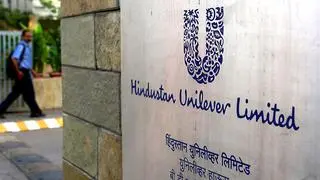The country’s first anti snake venom-maker, Bengal Chemicals & Pharmaceuticals, plans to resume production of its flagship offering, the anti-snake venom serum.
A proposal in this regard is awaiting clearance from the centre. Set up by the renowned Bengali chemist and nationalist entrepreneur Acharya Prafulla Chandra Ray in Kolkata in 1901, the company – nationalised in 1980 – was forced to stop production of the life-saving serum in 2006-07 following the lack of good manufacturing practice clearances and ageing donor animals, including horses.
The unit was then producing 100,000 vials annually.
According to PM Chandraiah, Managing Director and Director (Finance), the Bengal Chemicals & Pharmaceuticals will invest approximately Rs 30 crore as it plans to buy donor animals (horses) and have a new manufacturing set-up. The company’s Kolkata unit will be leveraged for the manufacture of antivenom. The target is to have an annual capacity of 400,000 vials.
Typically, antivenoms are produced using a donor animal – in most cases a horse –which is injected with the snake venom so that it produces a neutralising antibody.
Then, the blood is collected and purified to make the serum.
“We intend to resume production of the anti-snake venom serum over the next three years. Proposals have been sent across to the Ministry,” he told BusinessLine in an interview.
Failed Efforts
Bengal Chemical had started work on upgrading its anti-snake venom manufacturing facilities, in 2008-09. Construction work had begun, but was subsequently put on hold for want of funds.
Bengal Chemical reported its last profit in the early 1950s. Since then, it has remained in the red. However, its finances started improving with restructuring and modernisation of production facilities, improved sales and marketing, and better administration. The company reported its first profit (since nationalisation) of Rs 5 crore in FY17. In FY18, profits doubled to Rs 10 crore.
Chandraiah expects the company to report a profit of Rs 15-20 crore this fiscal, making it the highest profit-making pharma PSU.
“Today, we are profitable and can resume production of the anti-snake venom serum on our own if given the go-ahead” he said. So far, profits have been driven primarily by its home-care, personal care and pharmaceuticals verticals through heritage brands like ‘Phenol’ (floor cleaning phenyl brand), Aqua Ptychotis (indigestion syrup made from ajwain seeds) and Cantharidin hair oil.
The pharma division manufactures generic drugs and antibiotics supplied mostly to government hospitals.
Bengal Chemicals’ numbers, Chandraiah said, are expected to get a boost once the serum making starts.
The life-saving drug is in short supply with a handful of private manufacturers dominating the market.
“Anti-snake venom serum sales are expected to contribute at least 15-20 per cent to our bottom-line. The market scope is huge,” he said.
The average cost of a serum varies between ₹700-800 per dosage; and at least 10-15 doses are required depending on the intensity and the type of snake bite.
“If we achieve scale, we may look at exports to neighbouring countries where there is demand,” said Chandriah.
India, as per the World Health Organisation (WHO), accounts for nearly 50 per cent of the global snake bite cases and reported deaths. The most common snake bites include those from Indian cobra, Russel’s viper, scaled viper and common krait.
Various estimates suggest that there are 2.8 million snake bite victims annually, of which 46,900 people die.
In March 2016, Union Minister of Health and Family Welfare JP Nadda told Parliament that there were 3,252 deaths in three years (2013-2015) across India due to snake bites.
Of those, 483 deaths were reported from West Bengal alone.








Comments
Comments have to be in English, and in full sentences. They cannot be abusive or personal. Please abide by our community guidelines for posting your comments.
We have migrated to a new commenting platform. If you are already a registered user of TheHindu Businessline and logged in, you may continue to engage with our articles. If you do not have an account please register and login to post comments. Users can access their older comments by logging into their accounts on Vuukle.